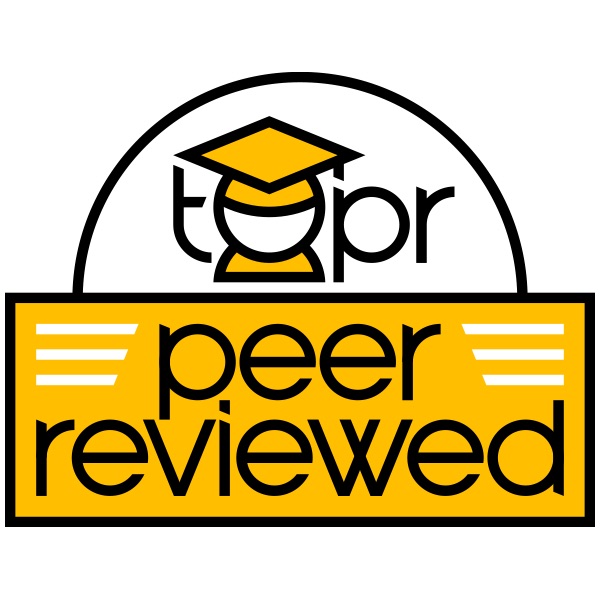
Student self-regulation, or the ability of students to self-direct and monitor their learning behaviors, has been shown to be a viable predictor for significant learning (Shea & Bidjerano, 2012) and accounts for significant portions of the variance in learning outcomes (Wertz, 2014). Scaffolding student self-regulation has been shown to impact self-regulation of online interactions (Cho & Kim, 2013), and instructor promotion of the use of strategies that support self-regulation in asynchronous online environments was shown to produce a greater difference for students than synchronous environments (Yilmaz & Keser, 2016). This means that students who can self-regulate are more likely to succeed online, and that instructors can offer supports to help students self-regulate better.
One way to scaffold student self-regulation is through prompting students to engage in metacognitive practices. Metacognition is the act of thinking about thinking or thinking about learning. Metacognitive skills have been shown to account for a significant additional percentage of the variance in learning (Torrisi-Steele, 2016 – citing Veenan, Van Hout-Wolters, & Afflerbach, 2006). The strategy shared below focuses on developing students’ self-regulation through metacognitive prompts and reflective journaling. Metacognitive prompts such as those shared below can be embedded at the course level or at the instructional activity level to support student success now and to help develop life-long practices for their future.
Link to example artifact(s)
Questions I can ask myself to improve my success as an online student
Questions_I_Can_Ask_Myself_to_Improve_My_Success_as_an_Online_Student
The document provided above is a set of “I” statements that can help students to focus on important aspects of taking control of their learning and becoming more self-regulated as online students.
This set of “I” statements can be provided at the start of the semester as part of an introduction to the importance of taking more responsibility for one’s own learning in an online course. Students can follow this introduction with an initial reflection journal entry.
The “I” statements could then be the focus of two additional “meta” moments during the course as part of an on-going self-reflection journal.
Finally, students can engage in a final self-reflection at the end of the course on what they have learned about themselves and their approach to learning, how this growing awareness impacted their learning in the course, and how it might impact them going forward.
In addition, the instructions for course assignments and projects can remind students to engage these prompts throughout the course as they work through course activities and projects.
Applications in Courses
In courses where there is a service project or internship, the three sections from Questions I Can Ask Myself to Improve My Success as an Online Student can be provided separately along with the instructions for each section of the project or internship. For example, students might be asked to submit a detailed plan for their project or internship based on your instructions along with a brief reflection on the “Before I begin…” questions. Instructions for subsequent sections of the project or internship can require a brief reflection on the “Now that I am working on course activities…” questions. Finally, about a week before the project or internship concludes, students can be asked to self-evaluate their work against the criteria provided for the project or internship in the instructions along with a reflection on the “As I complete my work…” questions.
In courses where students are writing papers, the “Before I begin…” questions can be included with directions for submitting the initial references, justification, and annotated bibliography for the paper. As students prepare to submit drafts or sections of their papers for feedback, they can be asked to use the “Now that I am working on course activities…” questions to briefly describe how they are approaching the writing of the paper and how that approach is helping them to learn. Finally, students can submit a brief reflection with their final version of the paper using the “As I complete my work…” prompts as a guide.
In courses where discussion forums are being used to tease out important concepts, theories and practices of the field, individual questions from “Now that I am working on course activities…” and “As I complete my work…” can be incorporated into the initial discussion prompt. For example, a course in organizational leadership might ask students to “compare two leaders from the readings, then decide which one would be better to hire for this organization’s mission. Include a justification citing evidence in the readings in the initial post, then respond to at least two peer posts in substantial and meaningful ways that help to deepen learning for yourself and your peers. Ask yourself the following questions:
- Am I carefully considering perspectives that differ from my own?
- Am I questioning the content and seeking additional information to reconcile conflicts?
- What questions remain for me about this content?
- What steps will I take to answer those questions?”
Link to scholarly reference(s)
Cho, M. H., & Kim, B. J. (2013). Student’s self-regulation for interaction with others in online learning environments. The Internet and Higher Education, 17, 69-75. https://doi.org/10.1016/j.iheduc.2012.11.001
Shea, P., & Bidjerano, T. (2012). Learning presence as a moderator in the community of inquiry model. Computers & Education, 59, 316-326. https://doi.org/10.1016/j.compedu.2012.01.011
Torrisi-Steele, G. (2016). Online learning and metacognition: A design framework. In V. Wang (Ed.), Handbook of Research on Learning Outcomes and Opportunities in the Digital Age (pp.221-241). Hershey, PA: IGI Global.
Wertz, R. E. H. (2014). What is learning presence and what can it tell us about success in learning online? IEEE Frontiers in Education Conference. https://doi.org/10.1109/FIE.2014.7044246
Yilmaz, R., & Keser, H. (2017). The impact of interactive environment and metacognitive support on academic achievement and transactional distance in online learning. Journal of Educational Computing Research, 55(1), 95-122. https://doi.org/10.1177/0735633116656453
Citation
Hamilton, D. (2018). Scaffold student success in online learning through metacognitive prompting and reflective journaling. In B. Chen, A. deNoyelles, & A. Albrecht (Eds.), Teaching Online Pedagogical Repository. Orlando, FL: University of Central Florida Center for Distributed Learning. https://topr.online.ucf.edu/scaffold/.